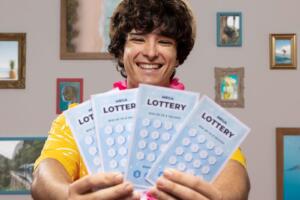Table of Contents

Tory Awatere Whanau, born in 1983, is a New Zealand politician who became mayor of Wellington following her election in October 2022. She is the first person of Māori descent to hold the city’s mayoralty, with iwi connections to Pakakohi and Ngāruahine. Whanau ran as an independent in the 2022 mayoral election but received endorsement from the Green Party, which she was previously a member of. She was regarded as one of the few progressive candidates to win a mayoral position in the 2022 local elections.
Wellington Leadership Overview
The Wellington City Council leadership consists of the Mayor and 15 elected councillors who collectively set the local legislation and strategic vision for the city. The Mayor leads the Council and works alongside councillors who represent different wards of Wellington, including some Māori representation via specific wards such as Te Whanganui-a-Tara Māori.
Mayor Tory Whanau’s Vision
Whanau’s priorities include affordable housing, improved public transport, upgraded infrastructure, and climate resilience. She has stressed uniting the council, strengthening relationships with mana whenua, and recognising Wellington’s diverse communities. Her focus extends to climate action and fostering a vibrant arts sector within a creative capital where people and nature flourish. Collaboration between local councils and central government is central to addressing challenges like inequality and environmental sustainability.
Mayoral Role & Governance
As mayor, Whanau has taken on a political and strategic leadership role, overseeing long-term urban planning that encompasses infrastructure renewal, social housing expansion, climate resilience, and transport improvements. She aims to promote transparent, inclusive decision-making that reflects Wellington’s diverse population. Her role involves managing local laws, community engagement processes, and maintaining relationships with central government, regional councils, and iwi.
Whanau’s term has included notable political challenges, such as council disagreements and public debate over projects like the Golden Mile upgrade. In March 2025, she revealed she had considered resigning due to pressure but chose to continue with support from family and iwi.
Urban Growth & Planning
Mayor Tory Whanau’s approach to urban growth and planning in Wellington has focused on revitalising the city center and enabling more affordable, higher-density housing. Early in 2024, the council approved a District Plan Upzoning that allows increased housing construction and intensification to improve affordability.
Upgrades to social housing are a major focus. Starting in 2025, work will begin on approximately 1,850 existing social housing units, alongside converting commercial buildings into around 183 new affordable rental apartments. This brings the total closer to 500 affordable rentals, aiming for 1,000 by 2026.
The Golden Mile Revitalisation Project, a $100 million-plus initiative launched in 2025, targets sustainable transport and urban improvements along Wellington’s central corridor from Lambton Quay to Courtenay Place. It includes widened footpaths, dedicated bus lanes, separated cycleways, and enhanced streetscapes to encourage walking and cycling while reducing car use, supporting local businesses and cultural venues.
Recognising ageing infrastructure, Whanau’s administration allocated $1.8 billion in the 2024–2034 Long-Term Plan to upgrade water, wastewater, transport systems, and public facilities with a focus on resilience and climate readiness. The urban planning efforts are guided by a commitment to low-carbon transport, biodiversity protection, and decarbonisation of public facilities.
While these initiatives advance Wellington’s sustainable development, they have drawn scrutiny over spending, generated tension with central government, and raised concerns in the business community about disruptions during renewal projects.
Community Engagement
Whanau has prioritised community involvement, emphasising the need for open dialogue and listening to diverse voices. She believes genuine participation is essential for creating policies that reflect the community’s needs.
Her leadership emphasises strong partnerships with mana whenua and the recognition of Māori perspectives in governance. The council maintains ongoing engagement through forums, Māori events, and collaboration with local iwi via the Tākai Here partnership, supporting co-governance arrangements.
Major city initiatives such as the Long-Term Plan, affordable housing developments, and the Golden Mile project have included public consultations and information sessions to keep Wellingtonians informed and involved.
National & Global Context
Whanau’s mayoralty has operated within national and global challenges, balancing growth with financial management. Wellington faces rising debt linked to infrastructure and seismic upgrades, which has affected credit ratings amid growing capital expenditure.
Discussions over Māori representation, including the Māori ward referendum, highlight wider national conversations on Treaty partnerships and indigenous governance. Wellington’s established Māori wards and collaborative governance models keep it central to these debates.
Internationally, Wellington ranks highly among Asia-Pacific cities for inclusivity, economic competitiveness, and governance. It received an “A” grade from a global coalition evaluating progressive policies, diversity, transparency, and quality of life, reinforcing its appeal to skilled workers and innovators.
Specifically, Wellington is known as New Zealand’s “rainbow capital” due to its significant LGBTQ+ community. It is recognised nationally and internationally for social inclusion, which contributes to the city’s economic and cultural life.
FAQs
What is Tory Whanau’s real name?
Tory Whanau’s full real name is Tory Awatere Whanau. She was born in 1983 and has ancestral ties to the Pakakohi and Ngāruahine iwi.
Who is the mayor of Whanau Wellington?
As of July 2025, Tory Whanau remains Wellington’s mayor but has announced she will not seek re-election in the October 2025 local elections. Instead, she plans to stand for a councillor role in the Māori ward to continue promoting progressive change.
Who is the new Wellington mayor?
The next mayor of Wellington has yet to be elected as the 2025 local election runs from 9 September to 11 October, with results expected by mid-month. Candidates include former Labour leader Andrew Little, Ray Chung, and others vying for the role.





